Georgia CTSA - K-Club
REGISTER HERE
Join us for a facilitated panel discussion, led by Stacy Heilman, to discuss changes to the NIH's review framework. Come prepared to learn from our distinguished panel as they draw on their experiences with being reviewers.
Panelists:
- Shannon Gourley - Emory University, Children's Healthcare of Atlanta, Emory National Primate Research Center
- Sasha Key - Emory University
- Sarah Shultz - Emory University
Georgia Tech Researchers Among World’s Most Highly Cited in 2025
Dec 02, 2025 —
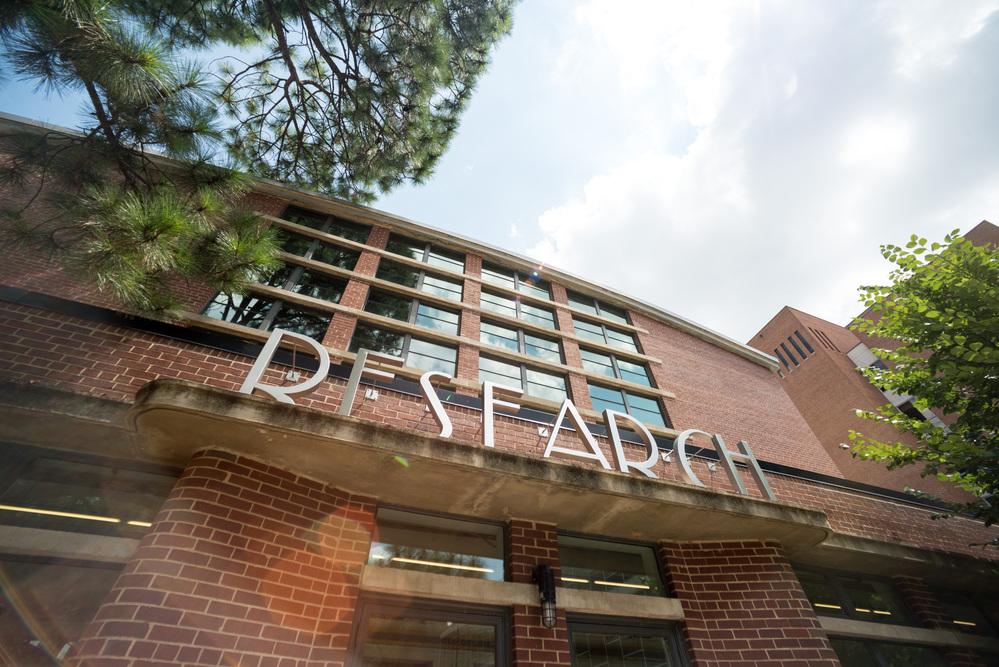
Georgia Tech proudly announces its faculty who have been named to the Clarivate Highly Cited Researchers 2025 list. This list is a global recognition of scholars with work among the top 1% most cited within their fields. This distinction demonstrates Georgia Tech’s leadership in advancing research with broad and lasting impact.
The Institute’s highly cited researchers include:
- Ian F. Akyildiz - retired professor, Electrical and Computer Engineering
- Antonio Facchetti – professor, Hightower Chair, Materials Science and Engineering
- Maohong Fan – adjunct professor, Civil and Environmental Engineering
- Konstantinos Konstantinidis – professor, Environmental Engineering
- Nian Liu – associate professor and Robert G. Miller Faculty Fellow, Chemical and Biomolecular Engineering
- Anant Madabhushi – professor, Biomedical Engineering
- H. Jerry Qi – Woodruff Professor, Mechanical Engineering
- Rampi Ramprasad – Regents’ Entrepreneur, Materials Science and Engineering
- Rodney J. Weber – professor, Earth and Atmospheric Sciences
- C.P. Wong – Charles Smithgall Institute Endowed Chair and Regents’ Professor, Materials Science and Engineering
“Our faculty’s recognition among the world’s most highly cited demonstrates Georgia Tech’s commitment to pioneering discoveries and solving complex global challenges through research,” said Tim Lieuwen, executive vice president for Research. “Congratulations to each of them on this impressive achievement.”
Clarivate’s annual list identifies researchers whose published work demonstrates exceptional influence, based on citation data from the Web of Science Core Collection over the past 11 years. These scholars have authored multiple Highly Cited Papers, which are publications consistently ranked in the top 1% by citations in their respective fields.
Clean, Old-Fashioned Collaboration: Engineering the Future of Healthcare at Georgia Tech and UGA
Nov 24, 2025 —

Tim Lieuwen and Chris King (Credit: Rob Felt)
If you’ve lived in Georgia long enough, you’ve almost certainly heard the friendly jabs tossed across divided Thanksgiving tables. On one side, a smirk and a mention of the “North Avenue Trade School.” On the other, a pointed retort: “To hell with Georgia.”
Few rivalries run deeper than the one known as “Clean, Old-Fashioned Hate,” the annual showdown between Georgia Tech and the University of Georgia (UGA). On Friday afternoon, November 28, the two will face off in one of the most anticipated matchups in years. These teams don’t like each other, and for a few hours every year, neither do friends, families, and even significant others.
Off the field, however, the schools are proving that collaboration, not competition, is the schools’ true strength.
For more than a century, Georgia’s flagship universities have united around complementary strengths, tackling the state’s biggest challenges together. That starts with making Georgians healthier.
“When Georgia Tech and UGA combine their strengths, together we create solutions that neither institution could achieve alone,” said Tim Lieuwen, executive vice president for Research at Georgia Tech. “These collaborations accelerate innovation in healthcare, improve lives across our state, and demonstrate that partnership — not rivalry — is Georgia’s most powerful tradition."
“The common denominator between these two great institutions is the populations they serve,” said Chris King, interim vice president for Research at UGA. “We have a duty to find solutions that help improve the quality of life for all Georgians, and that’s what these partnerships are all about.”
From programs like the Georgia Clinical and Translational Science Alliance (Georgia CTSA) to the National Science Foundation’s Engineering Research Center for Cell Manufacturing Technologies (CMaT), researchers at UGA and Georgia Tech are setting rivalries aside to build lasting partnerships that fuel innovation and expand the workforce to meet the state’s needs.
Pushing Cell Therapy Across the Goal Line
CMaT is an NSF-funded consortium of more than seven universities and 40 member companies. At Georgia Tech and UGA, teams are conducting many early stage translational projects to improve manufacturing of cell-based therapeutics.
One joint project between Andrés García, executive director of Georgia Tech’s Parker H. Petit Institute for Bioengineering & Bioscience, and John Peroni, the Dr. Steeve Giguere Memorial Professor in Large Animal Medicine in UGA’s College of Veterinary Medicine, addresses treatment of bacterial infections that can follow bone repair surgeries.
Bone fractures and non-union defects often require surgical implants, but 1-5% are compromised by bacterial infection, costing hospitals more than $1.9 billion annually. Current treatments are limited to sustained, high doses of antibiotics, which are less effective and can generate antibiotic-resistant bacteria. García and Peroni are engineering synthetic biomaterials that locally deliver antimicrobial agents to eliminate infections and promote bone repair.
Steven Stice, D.W. Brooks Distinguished Professor and Georgia Research Alliance Eminent Scholar at UGA’s Regenerative Bioscience Center, is also working with Georgia Tech’s Andrei Fedorov, professor and Rae S. and Frank H. Neely Chair in the George W. Woodruff School of Mechanical Engineering, to improve the quality and control of producing natural, cell-derived healing materials for regenerative medicine.
Adult cells secrete tiny, bubble-like vesicles that help other cells heal and regenerate tissue. Stice developed methods to boost vesicle production, while Fedorov created a probe that accelerates the process.
“Cells simply don’t secrete these healing vesicles in the quantities needed for scalable, clinical-grade treatments,” said Stice, UGA lead and co-principal investigator for CMaT. “Our collaborative work changes that, accelerating production in a way that finally makes large-scale regenerative therapies feasible.”
“Georgia Tech and UGA's collective commitment to advancing science and technology exceeds the intensity of our athletic rivalry,” Fedorov said. “Together, we’re advancing cell and therapy biomanufacturing to develop lifesaving treatments for the most devastating diseases.”
Georgia Tech’s Francisco Robles and UGA’s Lohitash Karumbaiah are using manufactured T cells to target cancer. Robles, who leads the Optical Imaging and Spectroscopy Lab in the Wallace H. Coulter Department of Biomedical Engineering, developed quantitative Oblique Back-illumination Microscopy (qOBM) to monitor tumor growth in real time. The method allows scientists to visualize patient-derived glioblastoma cell clusters generated in the Karumbaiah Lab, tracking tumor structure and behavior at various stages.
“Assessing therapeutic potency is often complex, costly, and ineffective for solid tumors,” Karumbaiah said. “qOBM simplifies the process by providing real-time, label-free monitoring of therapeutic efficacy against 3D solid tumors.”
The work could help doctors personalize cancer treatments by providing early, detailed signs of whether a therapy is working.
“This technique is more compact and affordable and lets us watch T cells attack cell cultures in real time,” Robles said. “This breakthrough could transform how we study disease and screen new treatments.”
A Playbook for Local Healthcare
Created in 2007 by the National Institutes of Health, Georgia CTSA is one of several NIH-funded national partnerships advancing new health therapeutics and practices. Since 2017, it has comprised UGA, Georgia Tech, Emory, and the Morehouse School of Medicine. The alliance’s reach extends far beyond campus borders, bringing together researchers, clinicians, professional societies, and community and industry partners to identify local health challenges and translate research into practical solutions.
And out of this alliance have come many collaborative studies among CTSA’s members.
One, the Georgia Health Landscape Dashboard, is a tool to identify local health gaps and connect regional health professionals or policymakers with the researchers who can best address their community’s challenges. UGA College of Family and Consumer Sciences Associate Professors Alison Berg and Dee Warmath, along with community health engagement coordinator Courtney Still Brown, are working with Georgia Tech’s Jon Duke, director of the Center for Health Analytics and Informatics at the Georgia Tech Research Institute and a principal research scientist in the School of Interactive Computing.
The dashboard has already helped match researchers with communities by combining epidemiological data with “community voice” insights through surveys of residents and local leaders.
For example, when examining diabetes data, the dashboard indicates Randolph County has the state’s highest prevalence, despite declining by about 8% between 2021-24. Meanwhile, Treutlen County’s rate increased 29.2% during the same period. Perhaps Treutlen’s need for diabetic care is a growing concern, while Randolph’s is being addressed. And perhaps Hancock County, which ranks diabetes its top priority in the community voice category, is in search of immediate solutions.
“The Landscape Dashboard is a fantastic example of how the unique expertise found at Georgia Tech and UGA can be brought together to create something truly valuable for all Georgia,” Duke said. “By bringing together a range of data sources and health analytics approaches, this collaboration has created a tool that delivers novel insights into health, community, and policy across the state.”
Supported by UGA Cooperative Extension and the Biomedical and Translational Sciences Institute, the project leverages a network of agents in every county across the state. Warmath said the project’s strength lies in its ability to connect research with real-world needs.
“To build a community-responsive ecosystem for biomedical research, scientists must recognize local needs, share progress with communities to foster trust and acceptance, recruit clinicians and industry partners, and strengthen the relationships between patient and caregiver,” Warmath said.
Teaming Up for Maternal Health
Warmath and a team of researchers at UGA, Georgia Tech, and Emory are also collaborating on an NIH-funded project uniting experts in maternal health, biostatistics, and consumer science to explore how wearable technologies could improve delivery-room care.
During childbirth, clinicians monitor countless maternal and fetal vitals — contractions, heart rates, oxygen levels, kidney function, and more. What new insights, the researchers asked, could advanced wearable technologies offer in the delivery room, and what barriers might prevent their use?
Using nationwide surveys and focus groups, the team gathered information from a representative sample of pregnant, postpartum, and reproductive-age women, as well as healthcare professionals, to examine acceptance of wearable health technologies during labor and delivery. In their analysis of this rich data source, the team is identifying key variables that reveal gaps in technology acceptance and the unique needs of diverse maternal populations.
Each partner institution brings unique expertise. At Emory, principal investigator Suchitra Chandrasekaran contributes clinical insights from direct patient care. At UGA, Warmath applies her knowledge in consumer science to analyze end-user motivation, attitudes, and behaviors. At Georgia Tech, experts like Sarah Farmer in the Center for Advanced Communications Policy’s Home Lab facilitate large-scale data collection.
With data collection now complete, the team is analyzing results to inform future design and deployment of wearable technologies.
“Each school has a different perspective,” Farmer said. “It’s not as simple as one school does this but doesn’t do that. Each has their expertise, but they offer different perspectives and different resources that, when pooled, can make our research that much more effective.”
Whether advancing maternal health, mapping Georgia’s health needs, or engineering next-generation therapies, UGA and Georgia Tech continue to prove that collaboration is Georgia’s strongest tradition. Further, the undergraduate and graduate students who work in these labs and others represent the state’s highly skilled workforce of tomorrow.
“When our institutions work together, Georgia wins,” Warmath said.
— By David Mitchell
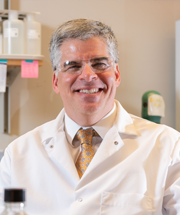
Andrés J. García
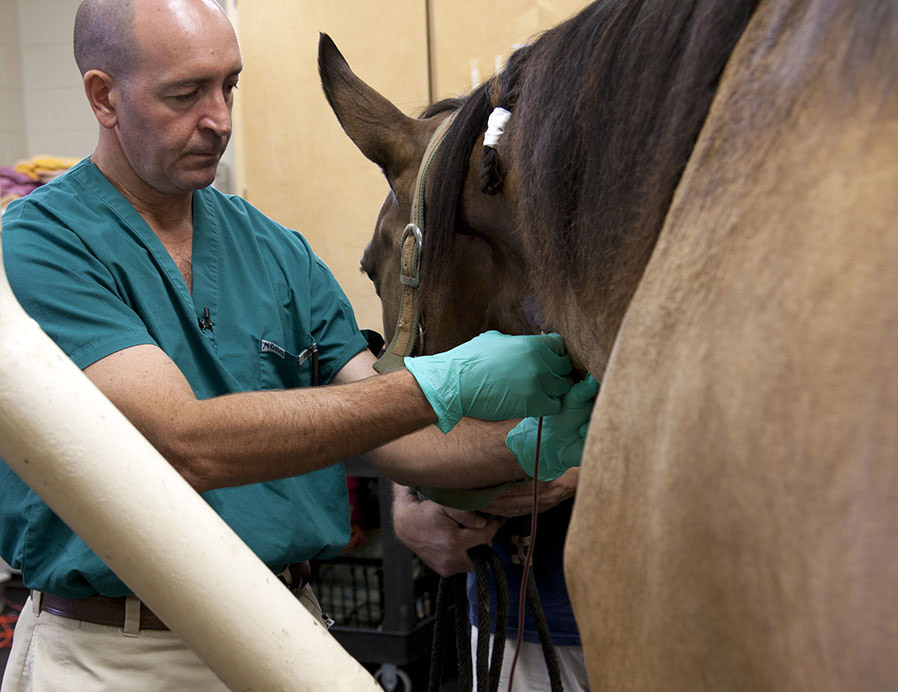
John Peroni
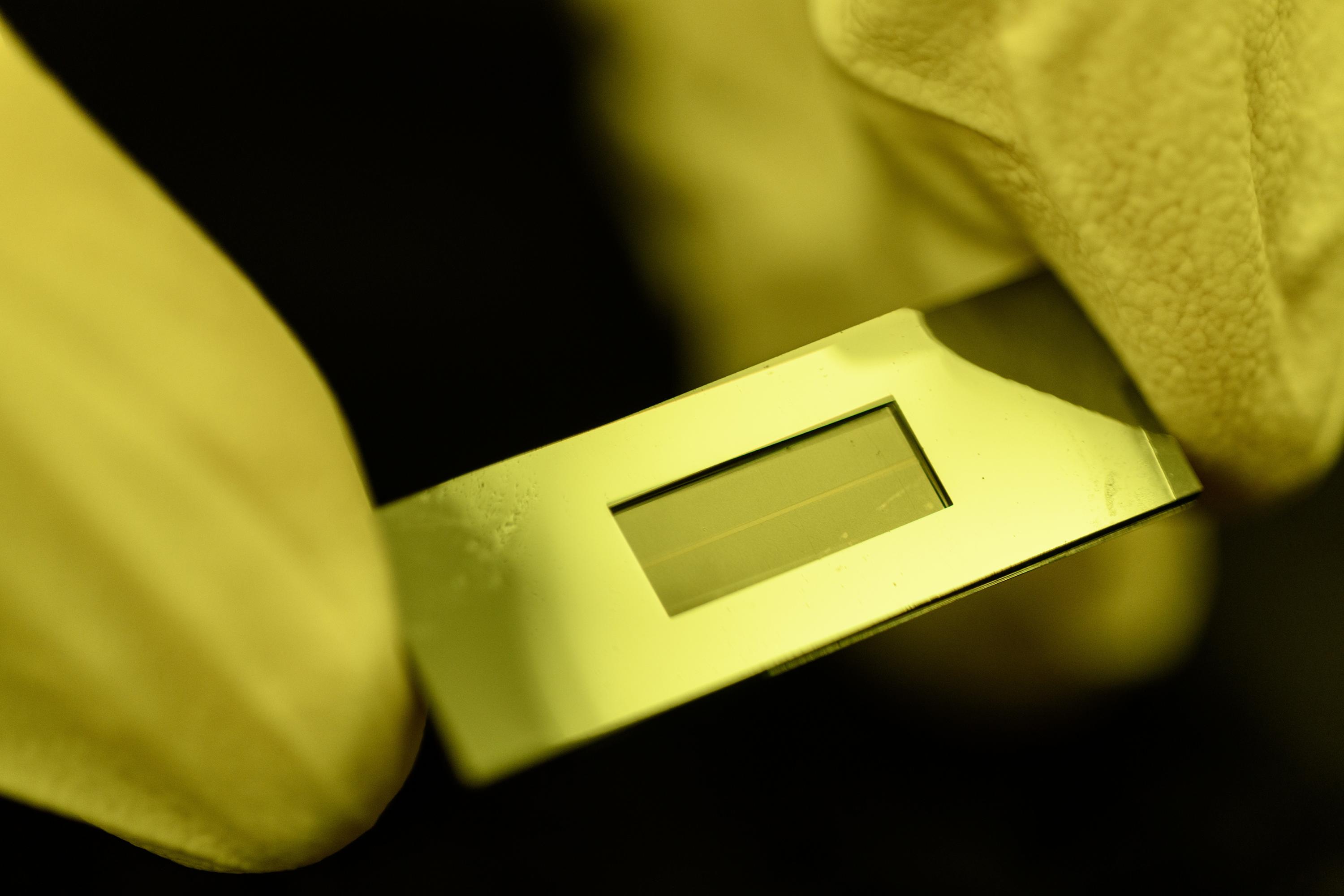
The Dynamic Mass Spectrometry Probe developed to monitor the health of living cell cultures (photo credit: Rob Felt)
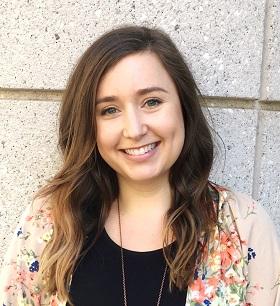
Sarah Farmer
For media inquiries:
Angela Bajaras Prendiville
Director of Media Relations
media@gatech.edu
Real-World Helper Exoskeletons Just Got Closer to Reality
Nov 19, 2025 —
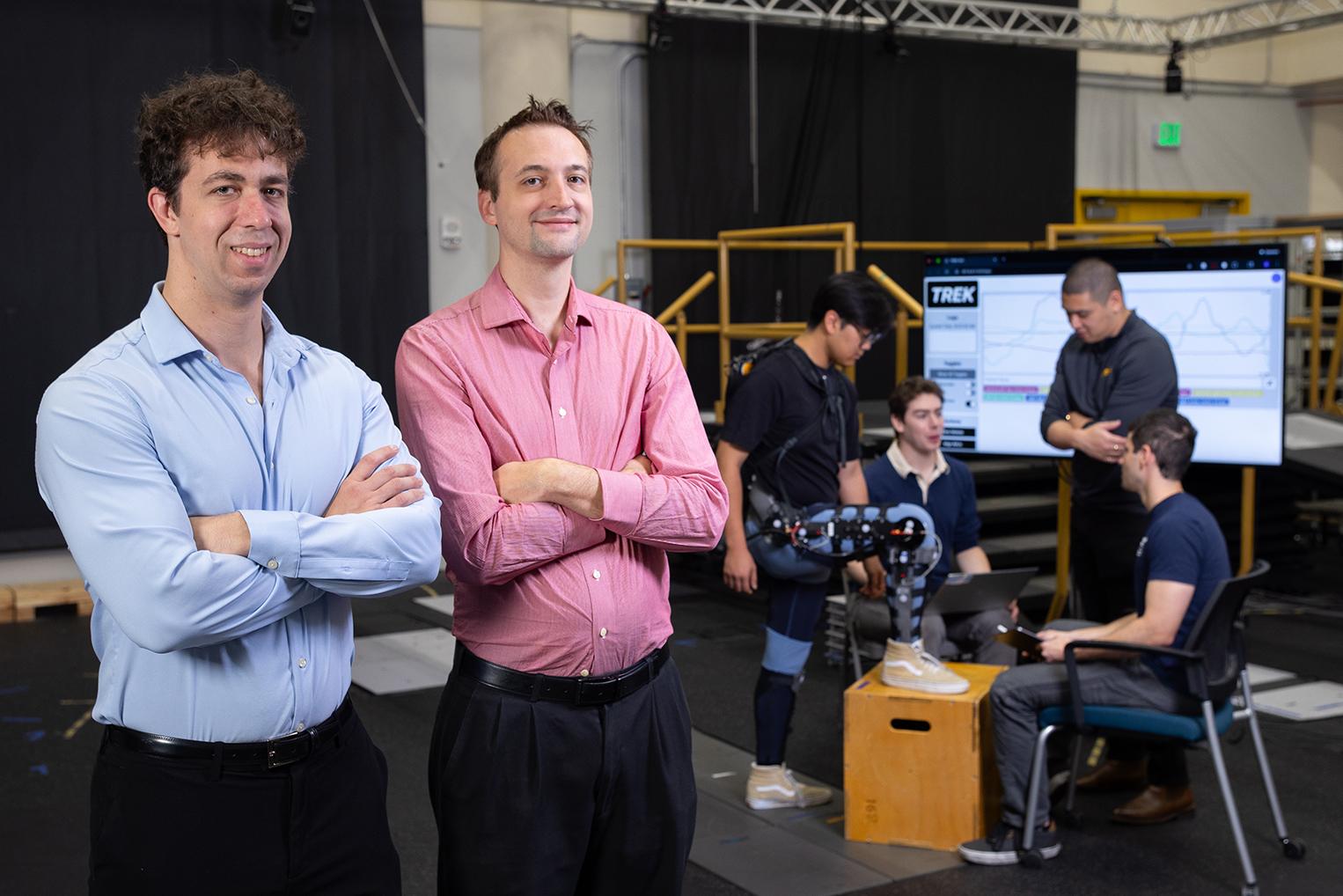
Researchers Matthew Gombolay, left, and Aaron Young used the lower-limb exoskeleton demonstrated in the background to test their new approach to creating exoskeleton controllers. They use huge amounts of existing data on how people move to create functional controllers able to provide meaningful assistance. And unlike earlier controllers, they do not require hours and hours of additional training and data collection with each specific exoskeleton device.
To make useful wearable robotic devices that can help stroke patients or people with amputated limbs, the computer brains driving the systems must be trained. That takes time and money — lots of time and money. And researchers need specially equipped labs to collect mountains of human data for training.
Even when engineers have a working device and brain, called a controller, changes and improvements to the exoskeleton system typically mean data collection and training start all over again. The process is expensive and makes bringing fully functional exoskeletons or robotic limbs into the real world largely impractical.
Not anymore, thanks to Georgia Tech engineers and computer scientists.
They’ve created an artificial intelligence tool that can turn huge amounts of existing data on how people move into functional exoskeleton controllers. No data collection, retraining, and hours upon hours of additional lab time required for each specific device.
Their approach has produced an exoskeleton brain capable of offering meaningful assistance across a huge range of hip and knee movements that works as well as the best controllers currently available. Their worked was published Nov. 19 in Science Robotics.
Joshua Stewart
College of Engineering
Georgia Tech Professor Awarded John Templeton Foundation Grant
Nov 18, 2025 —
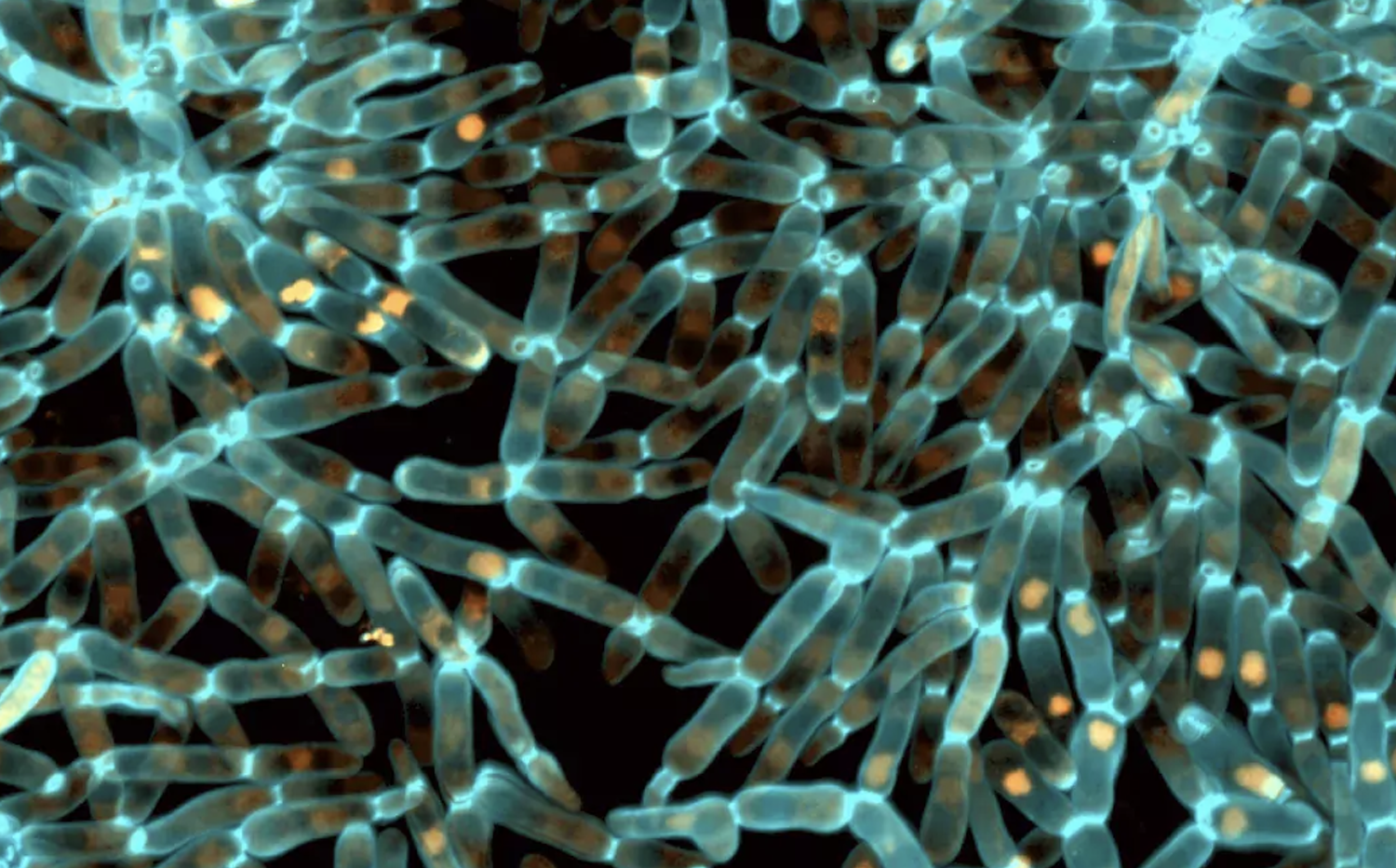
Will Ratcliff, the John C. and Leslie C. Sutherland Professor in the School of Biological Sciences, has been awarded a grant from the John Templeton Foundation. The philanthropic organization’s awards are reserved for scientific research into awe-inspiring topics and will enable Ratcliff to continue groundbreaking research into the origins of multicellular life.
Ratcliff’s lab has pioneered one of the world’s longest-running evolution experiments. For more than a decade, the lab’s snowflake yeast has completed tens of thousands of life cycles. This work has provided a unique lens for studying how single-celled organisms make the leap to multicellularity, gradually evolving from simple clumps of cells into organisms. It’s among the first to demonstrate how single cells grow into the multicellular organisms that form the basis of all life, from fungi to fauna.
“This grant is based on a conceptual breakthrough that emerged only after more than a decade of observing multicellular life evolve,” Ratcliff said.
The research is now at the stage when funding from organizations like Templeton is crucial. Ratcliff’s grant focuses on the concept of “agency,” or how a cell determines its function.
“The human body contains 39 trillion cells — most of which help us survive and reproduce — yet they themselves won’t pass on their genetic material,” Ratcliff said. “For example, skin cells are never going to make a new human.
“Multicellular organisms began as small groups where every cell contributed to reproduction. Over time, some cells shifted to supportive roles that didn’t reproduce, instead helping specialized reproductive cells, like sperm and eggs, succeed.”
This shift, in which most cells in an organism have given up the ability to reproduce, represents a fundamental shift biological agency.
“It’s a key step in the evolution of complex life, as it allows organisms to make things like muscles, neurons, and skin cells,” Ratcliff said.
But how did it begin? The researchers hypothesize that this shift in agency can occur very early in evolution, as a physical side effect of creating large, tough bodies. As multicellular organisms grow physically larger, cells on the interior may effectively become “stuck,” unable to ever leave the group. Much like a nerve cell in the body, these cells will never form a new organism. Instead, they are incentivized to help the reproductive cells in the organism succeed.
“We’ve long thought that this type of specialization could only occur after a great deal of genetic modification,” Ratcliff said. “Yet that’s not what appears to be happening in snowflake yeast — it seemingly happens ‘for free’ as a side effect of simple cellular biophysics very early in the transition to multicellularity.”
With the funding, Ratcliff and his frequent collaborator, School of Physics Associate Professor Peter Yunker, will be able to test this hypothesis using the group’s existing yeast.
"This award will enable us to address crucial questions about the evolution of multicellularity — and the role that physics plays in the process,” Yunker said.
Their results could fundamentally reshape our understanding of evolution, showing how the simplest life forms can give rise to extraordinary complexity. With each yeast cell, the researchers are uncovering the building blocks of life itself.
Tess Malone, Senior Research Writer/Editor
tess.malone@gatech.edu
Georgia Tech Uses Computing and Engineering Methods to Shift Neuroscience Paradigms
Georgia Tech Hosts Summit Devoted to Pediatric Health Innovation
Nov 10, 2025 —
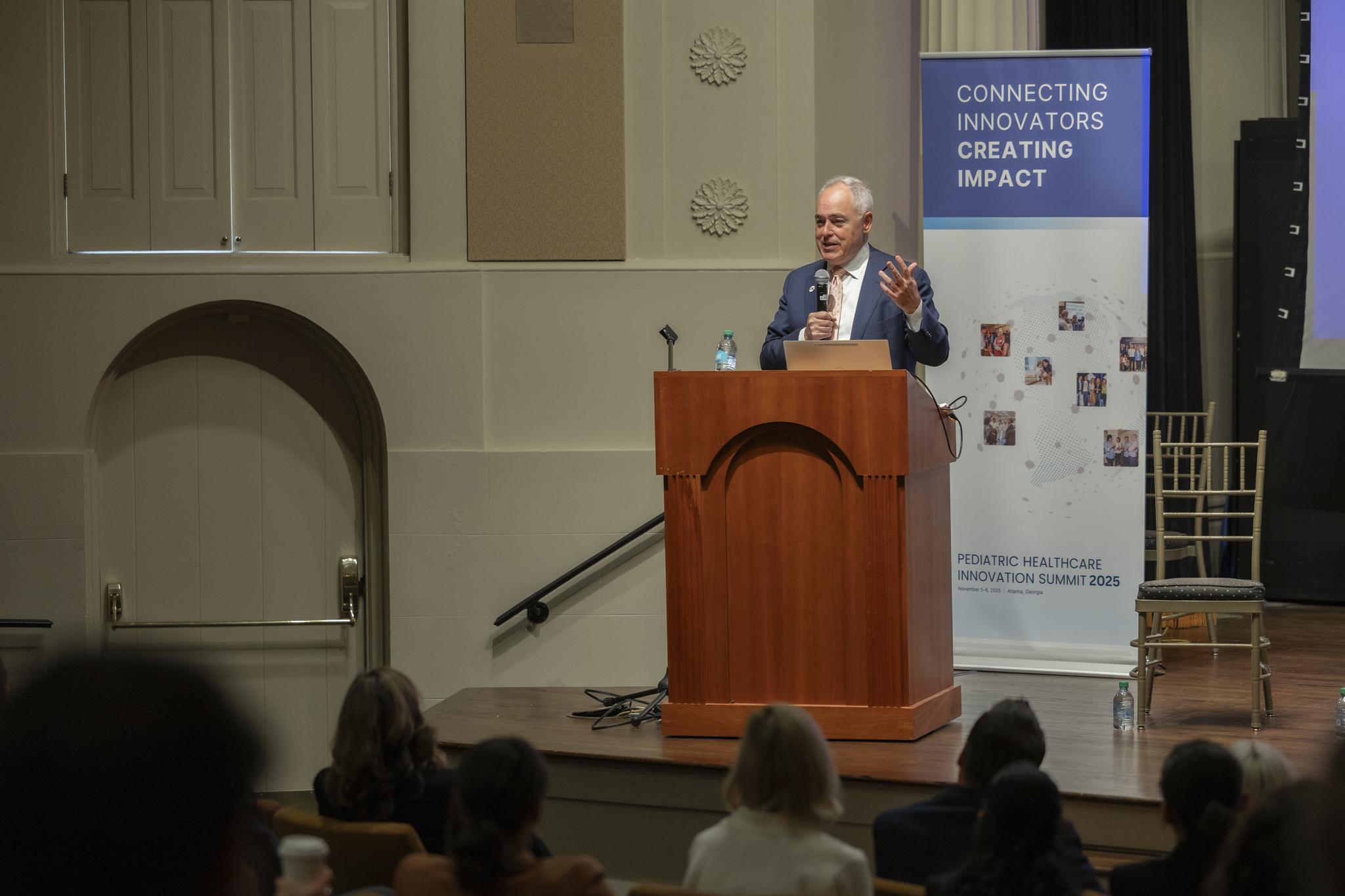
Imagine a world where pediatric gastrointestinal disease could be diagnosed by swallowing a capsule-sized camera, where heart defects could be corrected by biodegradable implants, and where ADHD could be diagnosed through virtual reality. Georgia Tech and its partners are helping bring these world-changing ideas to life.
On Nov. 5 – 6, Georgia Tech hosted the Pediatric Healthcare Innovation Summit 2025 (PHIS), a one-of-a-kind event that brought champions of children’s health together to share knowledge, facilitate collaborative initiatives, and accelerate medical innovation. The summit was co-presented by the Georgia Tech Pediatric Innovation Network (PIN), the International Society for Pediatric Innovation (ISPI), and the FDA-funded Pediatric Device Consortia (PDC).
The event included a tour of the new Arthur M. Blank Hospital, technology showcases, workshops, panel discussions, a poster session, and a pitch competition where companies were awarded funding from the Pediatric Device Consortia.
“Georgia Tech is committed to advancing medicine, but in particular pediatric medicine, which is normally underfunded compared to adult healthcare,” Georgia Tech President Ángel Cabrera said. “We are committed to playing our part, and we're doing that in partnership with the best organizations, combining our engineering skills with clinical partners who understand the most important needs of children.”
Cabrera was a guest speaker for the event, which took place at two locations across campus: the newly opened Science Square and the Historic Academy of Medicine. He emphasized that championing causes such as pediatric healthcare innovation not only aligns with Georgia Tech’s mission, but also with the vision surrounding the new infrastructure being built across campus.
“We're committed to turning our city and our neighborhood into a hub of innovation, and the area of life sciences is one of those areas that we are supporting — including our new Science Square neighborhood, which is devoted to precisely this,” he said.
Though industry events happen every year, what makes PHIS unique is its goal of uniting not only clinicians and healthcare administrators, but also researchers, investors, and entrepreneurs. Attendees are united around a shared goal of solving systemic problems and, ultimately, saving and improving the lives of children. Julia Kubanek, Georgia Tech’s Vice President for Interdisciplinary Research, said that this collaborative approach provides a unique opportunity to progress ideas and technologies that impact the industry.
“Particularly in the pediatric space, the market is relatively small. When you have a specialized pediatric technology, it's sometimes difficult to get the resources to advance that into clinical trials and into products that can go to market,” she said. “This environment that the summit creates is a supportive one for solving those problems and advancing life-saving research.”
While this was the third year that the event featured a pitch competition, it was the first year that winners were awarded monetary prizes. By bringing startups and investors together, the PHIS plays a vital role in getting impactful research from conceptual to consumer ready. This year’s winners included: Luminoah in first place, Rhaeos in second, and AcQumen Medical in third.
Though the event does encourage friendly competition, the ultimate goal remains to improve the lives of children and their families through collaboration, thought leadership, and innovation.
“Our north star is taking care of children,” Anthony Chang, founder of ISPI, said in his opening remarks. “I think we underestimate how much we learn together. I look at our jobs not as jobs but as a special calling — taking care of children.”
In addition to PIN, ISPI, and PDC, the event was sponsored by Georgia Tech’s Office of Corporate Engagement, Shriner’s Children’s Research Institute, Children’s Healthcare of Atlanta, the Georgia Department of Economic Development, the Georgia Research Alliance, and the International Children’s Advisory Network, among others.
Ashlie Bowman
Research Communications Program Manager
Channelopathy Science 2025
Click to Submit Your Free Registration - required to attend. Space limited.
This conference is devoted to sharing research findings related to brain channelopathies with the goal of fostering new collaborations and advancing the science. Trainees are encouraged to attend. A light breakfast and lunch will be provided.
IBB Finals Week Study Break
Feeling the finals crunch? Come unwind with us at a peaceful study break featuring guided meditation, and sound bowl healing to help you reset and refocus.
🧘♀️ What to Expect:
- Gentle meditation session
- Calming sound bowl experience
- A chance to relax and connect
No experience needed - just bring yourself and a willingness to relax. Yoga mats are encouraged, but not required.
